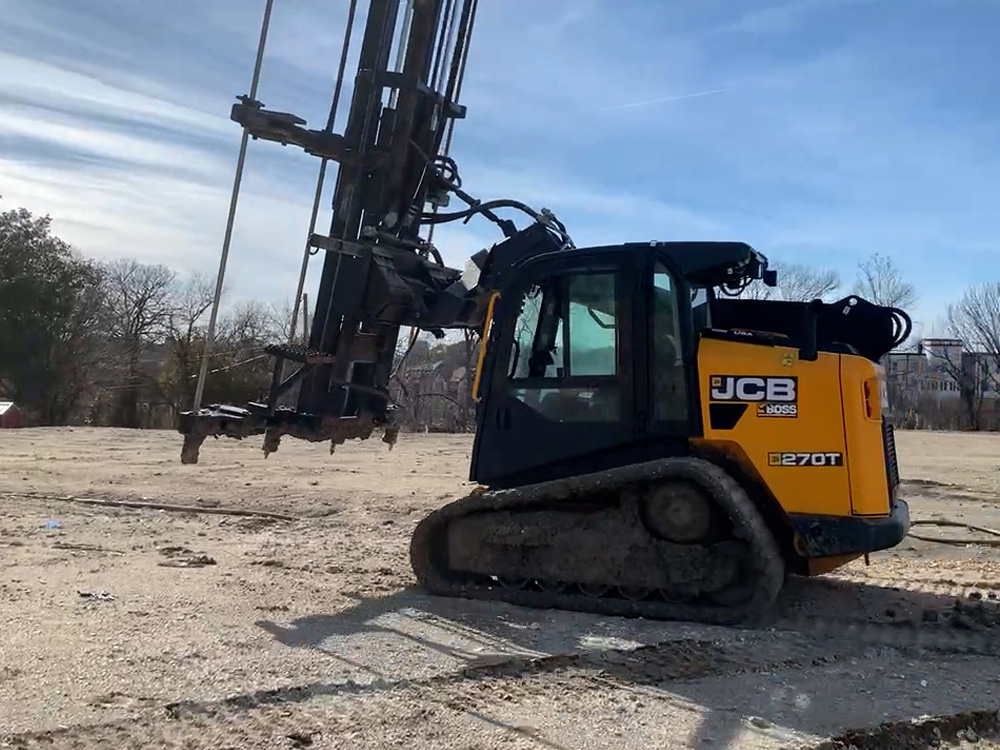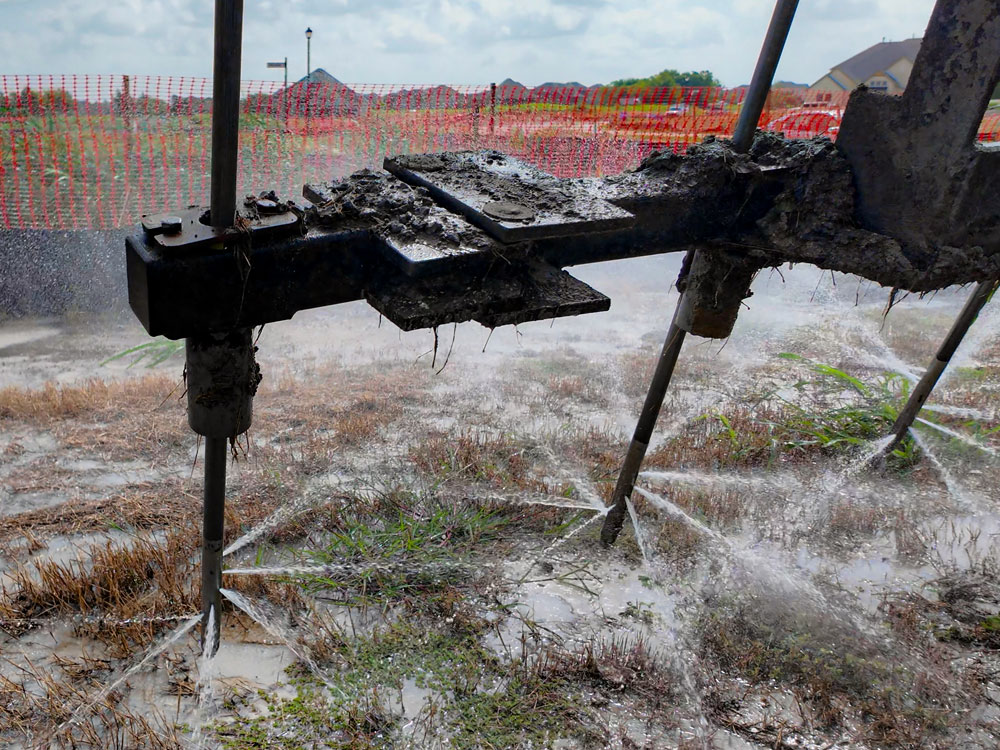How Todd Horn Keeps Texas Foundations Solid
In Texas, the ground moves more than most people realize. Beneath every slab and street, expansive clay swells when it rains and contracts when it dries. For builders and developers, that movement is the hidden enemy of predictable construction schedules and long-lasting foundations.
Few people understand that reality better than Todd Horn, Chief Operating Officer of Texas ProChemical Soil Stabilization. For more than three decades, Todd has led field operations and innovations in soil stabilization — refining a process his father, Bob Horn, pioneered in the early 1990s. Their family-run company has become synonymous with reliability beneath the surface, providing consistent soil performance before a single foundation form is set.
“Everything starts with the soil,” Todd says. “If the ground moves, the structure above it doesn’t stand a chance. Our job is to make sure that never happens.”
From Field Knowledge to Proven Science
Todd Horn didn’t come from a boardroom — he came from the field. His background is in equipment, logistics, and the physical science of how Texas clay behaves under pressure. When he talks about soil, he doesn’t speak in abstractions. He talks about swell percentages, PVR levels, and 6-inch injection intervals.
“We stabilize expansive clay by correcting swell and PVR levels before foundation work ever starts,” Todd explains. “That’s how you build on confidence — not guesswork.”The ProChemical process is both simple and sophisticated. Crews inject a proprietary ionic stabilizer deep into the soil at precise three-foot centers across the entire building pad — and five feet beyond the perimeter. The solution changes the polarity of clay particles, preventing water from bonding to them. In effect, the soil stops acting like a sponge and starts behaving more like compacted sand: stable, uniform, and predictable.

“Under a microscope, untreated clay looks like layers of pancakes with water trapped between them,” Todd says. “Our injection process changes that structure so the water can’t bond. The soil becomes firm, dense, and far more stable.”This method doesn’t just reduce heave; it also increases load-bearing capacity, which means foundations, driveways, and commercial slabs perform as designed for decades. According to the American Society of Civil Engineers, expansive clay is responsible for billions of dollars in structural damage each year — more than floods, tornadoes, and earthquakes combined. ProChemical’s vertical injection system directly tackles that root cause rather than treating symptoms after construction.
A Texas-Born Solution to a Texas-Sized Problem
Much of North Texas sits atop a formation known as the Blackland Prairie, a vast stretch of CH-class clay notorious for swelling and shrinking with moisture. This high-plasticity soil can move several inches vertically through the seasons, causing foundations to crack, doors to misalign, and structural frames to shift.
For decades, the common fix was moisture conditioning — a slow, costly process of excavating soil ten feet deep, re-wetting, compacting, and replacing it in layers. Todd Horn and his father proved there was a faster, more effective way.
“Moisture conditioning works, but it’s time-consuming and expensive,” Todd notes. “We can treat that same soil in place — no excavation, no delays — and deliver the same or better results in a fraction of the time.”Their electro-chemical injection treats the soil in place, using specialized tractors equipped with hydraulic masts that drive steel rods into the ground every three feet. Each rod injects the stabilizer at six-inch intervals, ensuring even vertical coverage from surface to design depth. Depending on geotechnical recommendations, that depth ranges from ten to fifteen feet for most projects.
“We follow the science,” Todd says. “Every injection depth, every interval, is determined by a geotechnical report. That report tells us how deep the active clay layer goes, and we make sure we treat all of it.”The result is a subsurface that no longer shifts unpredictably. Builders get consistency across every lot, developers gain schedule certainty, and homeowners inherit foundations that stand firm against the elements.
“When you finish a project and know the ground under that slab isn’t going anywhere,” Todd adds, “you’ve just eliminated years of risk for everyone involved.”

Based on honesty and experience
Integrity, accuracy, and verification via results are the core values that Todd Horn’s father instilled in him. A clear geotechnical report, a correct proposal, and a clear scope are the starting points for every project. Crews evaluate the soil after injection to make sure that the swelling has gone down and that the work meets engineering standards.
Todd says, “We don’t sell chemistry; we sell certainty.” “We give builders and engineers information they can trust before they even pour concrete.”Texas ProChemical has earned the trust of cities, big developers, and homeowners across the region because they promise to deliver results that can be measured. Their work always meets or exceeds engineering standards, and they often lower potential vertical rise (PVR) to less than one inch. This is true for everything from Frisco Square to custom homes in Rockwall.
Todd remembers his dad telling him, “Your word is your warranty.” We will show that we can stabilize it to a specific level with post-injection testing if we say we will.University-level geotechnical engineers have tested ProChemical’s ionic solution in a lab and confirmed that it can permanently increase shear strength and decrease swelling. It’s a modern answer to an old Texas problem that is safe, non-toxic, and good for the environment.
Todd says, “Our stabilizer is pH-balanced and good for the environment.” “It won’t hurt plants, pets, or groundwater.” It merely modifies how the soil acts
A Foundation of Trust
Since 1992, the Horn family has built ProChemical on one simple truth: everything starts with the ground. When that ground is stable, projects finish on time, budgets hold, and structures last.
“When you stabilize the soil right, the rest of the project just goes smoother,” Todd says. “You eliminate surprises before they ever happen.”For Todd Horn, soil stabilization isn’t just a service — it’s a legacy of craftsmanship passed from one generation to the next. And for builders across Texas, it’s the peace of mind that their foundations will stay as solid as the people who prepared the soil beneath them.
